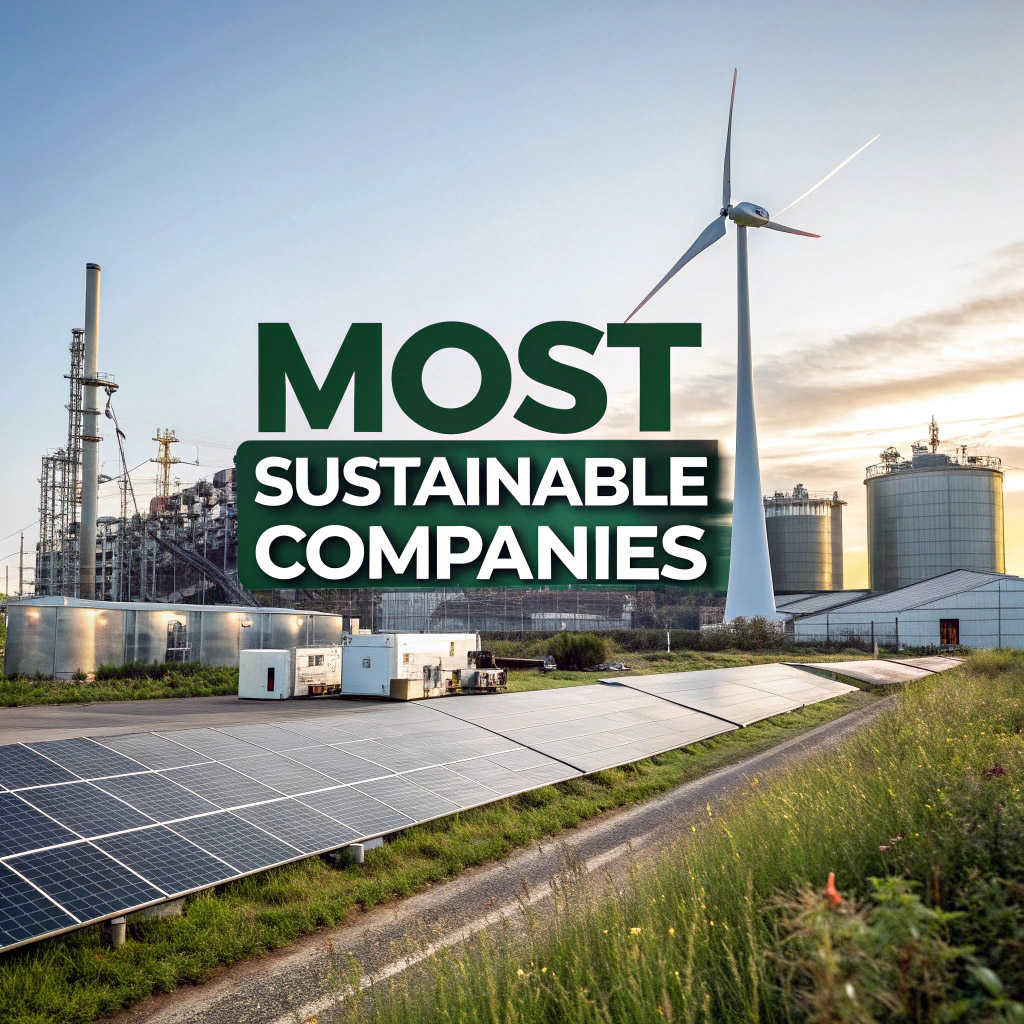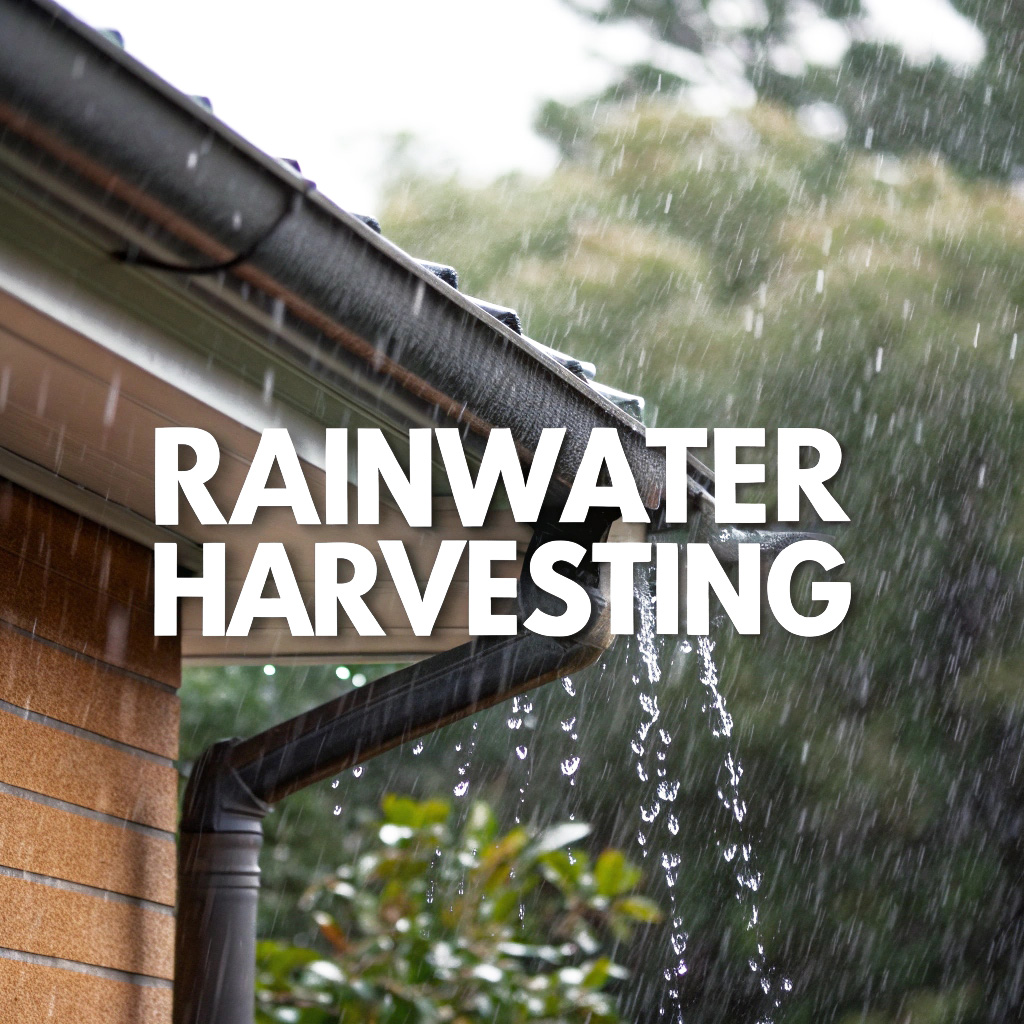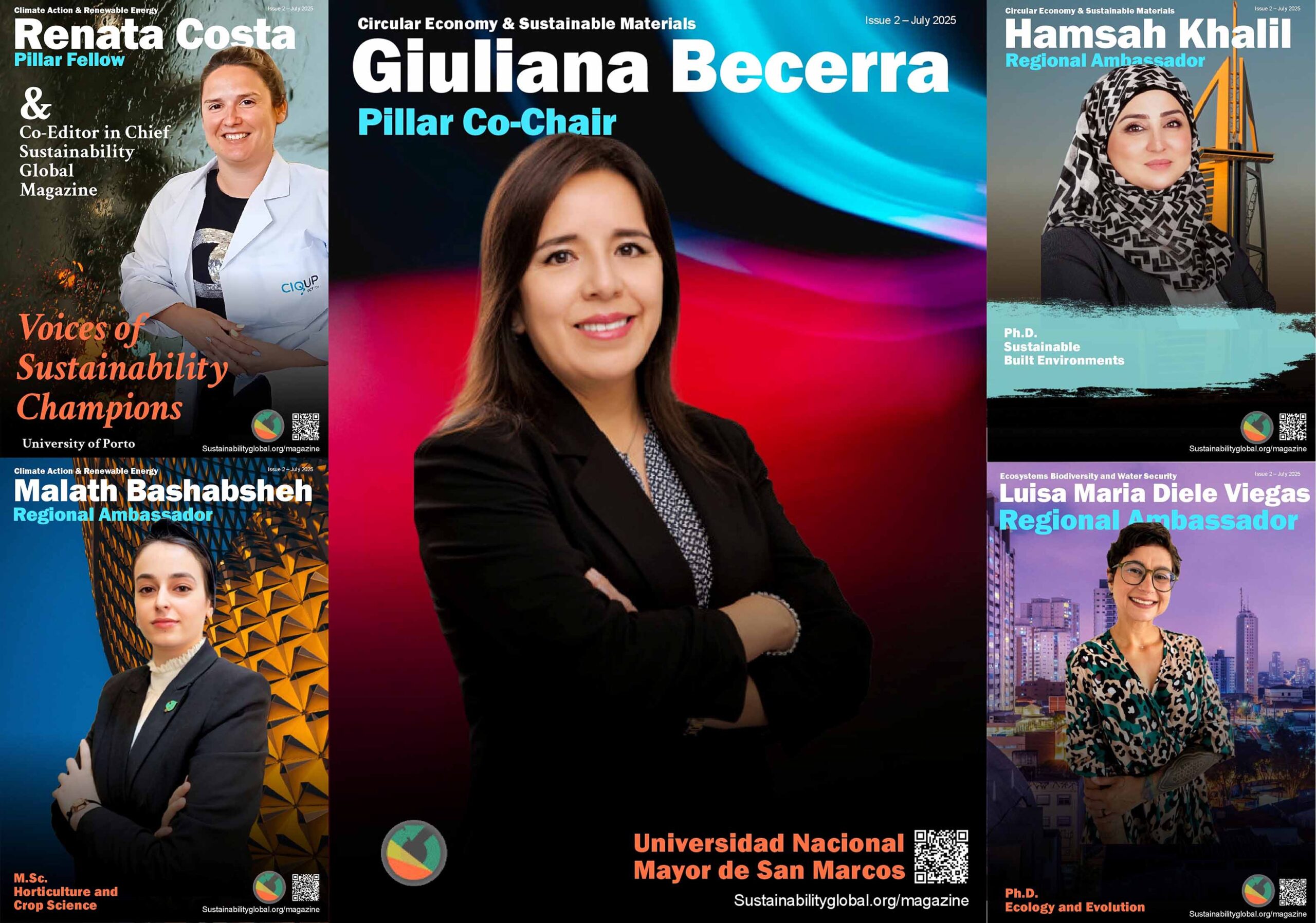Introduction
In today’s climate-conscious era, sustainability is a vital driver of business success. It is no longer just a slogan but a marker of lasting relevance. Organizations are increasingly prioritizing corporate social responsibility (CSR), which involves companies voluntarily improving society and the environment beyond legal requirements. This focus spans environmental, social, and governance (ESG) areas: ‘environmental’ is a company’s impact on the natural world (like emissions or resource use), ‘social’ is how companies treat people inside and outside the organization (such as employee rights, diversity, and community involvement), and ‘governance’ is how an organization is managed and run (including leadership, ethics, and compliance).
TIME, in partnership with Statista, analyzed over 5,000 global firms to identify the world’s 500 most sustainable companies. This evaluation recognizes businesses surpassing in CSR practices, using rigorous performance metrics and public perception to spotlight leaders in environmental and social responsibility. These rankings are based on established sustainability reporting, actual environmental and social performance, and the company’s openness (or transparency). Reporting refers to how companies disclose their progress and activities in these areas.
TIME and Statista set out to answer a tough question:
Can companies thrive and protect the planet?
Their research delivers a resounding yes, if companies take bold action. Low emissions, slashed water use, and serious investment in renewables do not hinder profit; they unlock growth. While the Fortune 500 lags, these leaders prove that profit and responsibility are inseparable.
Companies practicing sustainability face significant challenges, including tariffs, supply chain disruptions, and evolving government incentives, which can impact profits and slow investments in clean energy and sustainable materials.
Before spotlighting the individual champions, see why these five giants stood above the rest in TIME & Statista’s 2025 ranking. This isn’t just a list; it’s a practical guide for organizations seeking to pursue sustainability as a competitive edge and core principle (Ioannis P. Christodoulou et al., 2024).
Methodology: How the Rankings Were Determined
The evaluation began with a comprehensive selection of over 5,000 of the world’s largest and most influential companies, considering factors such as revenue, market capitalization, and public prominence. From there, a rigorous four-step methodology was applied to identify the top 500 companies, which were evaluated across more than 20 key data points.
Exclusion of Non-Sustainable Businesses
Firstly, companies operating in industries deemed unsustainable, such as those involved in fossil fuel extraction or deforestation, were excluded. Moreover, firms listed on negative sustainability lists—including the Forest 500 Report, Carbon Majors, and the PERI Top 100 Polluter Indexes—were automatically disqualified. To further confirm that this ranking highlighted genuinely responsible businesses, companies with major environmental or social controversies were also excluded.
Commitment & Ratings
Companies were then assessed on external sustainability commitments and ratings from recognized organizations. Key criteria included CDP scores (CDP is a nonprofit that runs an environmental disclosure system), adherence to the UN Global Compact (a UN initiative encouraging companies to adopt sustainable practices), alignment with the Science Based Targets initiative (SBTi—a program that evaluates whether company climate targets are in line with climate science, covering both near-term and long-term goals), inclusion in the S&P Global Sustainability Yearbook (an annual ranking of sustainable companies), participation in the UNFCCC Race to Zero campaign (a United Nations climate action drive), and evaluations from MSCI ESG & SRI (MSCI provides ratings on companies’ environmental, social, and governance performance; SRI stands for socially responsible investment).
Reporting & Transparency
Reporting and transparency were evaluated by examining the availability and quality of sustainability reports. Evaluators checked whether companies had published reports covering their activities in environmental, social, and governance (ESG) areas for 2023, whether these reports had been independently checked (external assurance), and if they followed globally recognized standards. Key standards include GRI (Global Reporting Initiative, which sets standards for sustainability reporting), SASB (Sustainability Accounting Standards Board, which sets industry-specific standards for sustainability disclosure), and TCFD (Task Force on Climate-related Financial Disclosures, a framework for climate reporting that is now part of the International Sustainability Standards Board under IFRS, or International Financial Reporting Standards).
Environmental & Social Stewardship
In the final stage, companies’ environmental and social performance was evaluated using key measurements. Environmental key performance indicators (KPIs, which are measurable values showing how effectively a company is achieving its objectives) included emission intensity (amount of emissions per unit of activity), emission reductions (quantified decreases in emissions), energy efficiency (using less energy to perform the same tasks), renewable energy ratio (percentage of total energy that is renewable), waste intensity (waste produced per unit of activity), and percentage of recycled waste. Social KPIs covered the representation of women in leadership roles (both board and management), the gender pay gap (the difference in pay between men and women), workplace safety (the frequency of work-related injuries), and employee turnover (the rate at which workers leave the company).
An overall sustainability score was calculated on a scale of 0 to 100. The top 500 companies achieving the highest scores were recognized as the World’s Most Sustainable Companies 2025, spanning more than 30 countries. The countries with the largest number of these leading firms were the United States, Japan, and France (Time, 2025).
1. Schneider Electric

Schneider Electric once again ranked first in TIME’s 2025 sustainability index. The French multinational is best known for its energy management and automation systems, which help clients reduce their energy use and emissions. Its Sustainability Impact program has already enabled more than 553 million tonnes of CO₂ savings since 2018, while its top suppliers have reduced their own emissions by 27%. Schneider’s net-zero goals have been checked and confirmed by the Science-Based Targets initiative (SBTi), and it has held an “A” rating from CDP (a leading climate disclosure platform) for over a decade (Perspectives. 2025).
In 2024, the company surpassed its internal climate targets, launched electric vehicle (EV) trucks with RichLand Logistics, and expanded its Charge Pro stations across Europe. Through its Energize program, it helps major pharmaceutical companies, such as Sanofi and Novartis, obtain renewable energy. Schneider also leads the market in energy grid digitalization, moving faster than its large engineering peers, including Siemens, GE Vernova, and ABB. Its EcoStruxure platform allows industries to digitize operations and integrate renewable energy, securing top scores in environmental performance, accountability in its business network (value chain), and openness (transparency).
2. Telefónica

Telefónica ranked second in the 2025 TIME and Statista sustainability index, making it the world’s top telecommunications company for sustainability and the leading Spanish firm on the list. The company climbed seven places from last year with a score of 87.68, nearly seven points higher than its previous result.
“Sustainability is deeply integrated into our business model and inspires us to lead in responsible digitalisation,”
says Elena Valderrábano, Telefónica’s Global Chief Sustainability Officer.
The recognition reflects Telefónica’s strong climate commitments, as verified by the Science-Based Targets initiative, and its consistent transparency in reporting. For eleven years, the company has earned a place on CDP’s “A List” for climate action.
Telefónica runs on 100% renewable electricity in its main operations and drives efficiency through large-scale energy projects.
Its Eco Smart digital solutions and Supplier Engagement Programme help customers and partners reduce their own footprints, while its diversity efforts have put 40% of women on the Board and 34% in management roles. The company has also doubled the number of employees with disabilities.
Together, these initiatives show how Telefónica is embedding sustainability across its operations, value chain, and workforce, proving that digital growth and climate responsibility can go hand in hand.
3. Brambles

Australian logistics giant Brambles, operating through its CHEP brand, has excelled to third place in the TIME and Statista 2025 sustainability ranking. It also led the global transport and logistics sector and was one of only two Australian firms in the top 300.
Brambles’ model is built on share and reuse. Its global pool of 347 million pallets, crates, and containers spans more than 750 service centers, reducing waste and emissions across supply chains. Chief Sustainability Officer Juan José Freijo says the recognition affirms the company’s ambition to
“go beyond zero impact and build a regenerative supply network that restores our systems.”
Aiming for a fully regenerative business model (regenerative means creating positive impact on ecosystems, beyond just reducing harm), the company has recently launched new 2030 sustainability targets. Brambles has already earned repeated recognition, ranking #4 in the 2025 Corporate Knights Global 100 (a leading sustainability ranking) and its 11th consecutive inclusion in the Dow Jones Sustainability World Index (DJSI, a respected global index for sustainability leaders).
By reshaping logistics into a circular economy system, Brambles proves that even a century-old company can lead the way toward a regenerative future.
4. Temenos

Swiss banking technology leader Temenos rose to 4th place in the TIME and Statista 2025 sustainability ranking, earning the distinction of the highest-ranking Swiss company and the only core banking software provider in the top 40.
Temenos integrates sustainability into both its operations and its technology. Its banking solutions help clients worldwide deliver efficient, secure, and environmentally conscious financial services. CEO Jean-Pierre Brulard says the recognition reinforces the company’s mission to
“drive sustainability not only within our own operations, but across our clients, suppliers, and the communities we serve.”
The company has consistently earned top environmental, social, and governance (ESG) ratings from S&P Global (a major credit rating and analytics firm), CDP, EcoVadis (a company that rates corporate sustainability), and Sustainalytics (another ESG rating firm). Its progress in inclusive workplace practices, strong company oversight (corporate governance), and clear sustainability reporting, while aligning its climate commitments with the Science Based Targets initiative (SBTi) makes it stand out from others.
Temenos’ approach demonstrates that technology can be a force for sustainability. By embedding ESG leadership and innovation into the core of banking software, the company proves that even in a highly specialized, software-driven industry, a firm can shape a responsible, sustainable, and forward-looking financial ecosystem.
5. Moncler

Italian luxury brand Moncler is demonstrating that style and sustainability can coexist. The iconic outerwear company has climbed to 5th place in the TIME and Statista 2025 sustainability ranking, earning the title of Italy’s most sustainable company and topping the global apparel, footwear, and merchandise sector.
Moncler’s sustainability strategy is woven into every part of its business, from responsible sourcing and eco-conscious production to inclusive workplace practices and community engagement. The company highlighted that the ranking “reflects our commitment to sustainability” and reinforces its drive to “build a sustainable business for the long term.”
The TIME and Statista ranking assessed over 5,700 companies worldwide across more than 20 performance indicators. These included transparency in environmental, social, and governance (ESG) reporting; environmental impact; and social responsibility. Ratings from CDP, MSCI (an investment research firm that evaluates Environmental, Social, and Governance, or ESG, factors), and S&P Global were taken into consideration. Moncler’s leadership puts it ahead of luxury peers such as Hermès, Puma, Lululemon, and Hugo Boss, highlighting that sustainability is now a defining factor in competitive business success.
By incorporating environmental and social responsibility at the core of its operations, Moncler reflects that a fashion house renowned for its quilted coats can also be a global leader in sustainable innovation. The company demonstrates that luxury, growth, and positive impact are not mutually exclusive—they can be seamlessly integrated into a business model that inspires the entire industry.
Related articles/blogs:
Conclusion
The top five most sustainable companies of 2025 demonstrate that sustainability is not just a peripheral element but a strategic imperative driving innovation, resilience, and long-term growth. From Schneider Electric’s energy-saving solutions to Moncler’s eco-conscious approach, these organizations show that environmental and social responsibility can be effectively integrated into core business operations.
These organizations implemented measurable, profitable, and scalable sustainable practices by adopting transparency in reporting, setting competitive science-based targets (clear, quantitative goals based on current climate research), and integrating ESG (Environmental, Social, and Governance) factors into their workplaces and supply chains. They serve as models for businesses seeking to reduce emissions, enhance social outcomes, and achieve a lasting impact.
For companies and individuals alike, the world’s most sustainable businesses provide inspiration and guidance, showing that growth, innovation, and positive impact are not mutually exclusive. Let their examples motivate you to take actionable steps today—integrate sustainability into your own practices, set ambitious targets, and contribute to building a greener, more equitable future. The path is clear: follow in these leaders’ footsteps and champion sustainability at every level of your organization and community.





One Response
Hello folks!
I came across a 144 great website that I think you should check out.
This resource is packed with a lot of useful information that you might find helpful.
It has everything you could possibly need, so be sure to give it a visit!
Additionally remember not to forget, everyone, that one constantly are able to in this particular article locate responses for the the very confusing inquiries. We attempted — lay out the complete content in the extremely understandable manner.